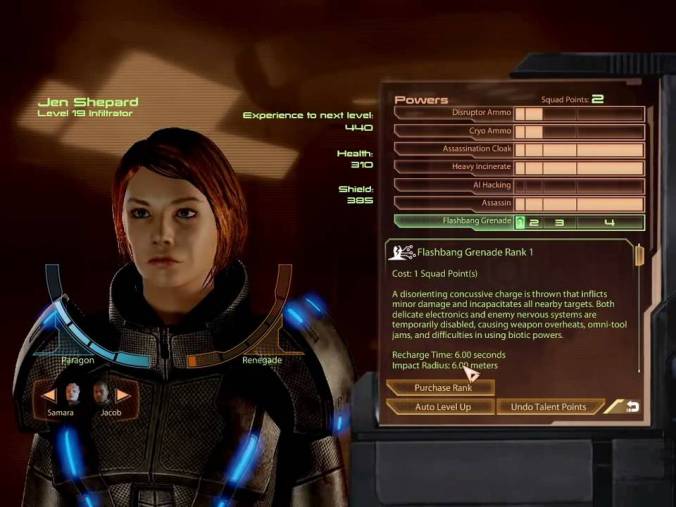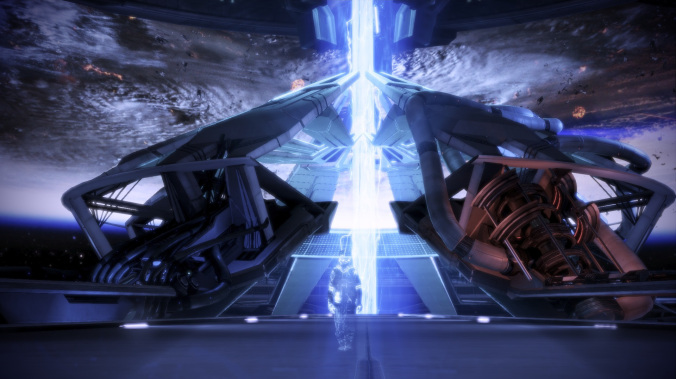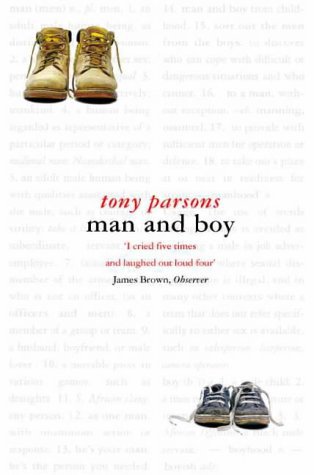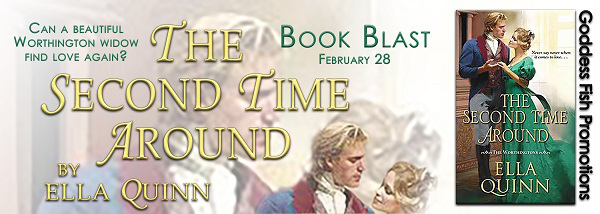The Cornelian Dilemma is one of the best and easiest ways to create drama. If you’re into the etymology, the name comes from French Renaissance playwright Pierre Corneille, whose tragedies often revolved around a character having to decide between two equally unsatisfying options. In Le Cid, his masterpiece, the main character, manly man Rodrigue, has to decide whether he wants to kill his fiancée’s father, who has committed a terrible offence against his family – if he does, he loses the woman he loves; if he doesn’t, he becomes a honorless pariah. Which, all in all, is an interesting evolution from a former model of tragedy, where the Fatal Flaw(s) of the main character leads them to an inexorable doom: putting the stakes out of the metaphysical realm and into the messy reality of human interaction; tales of Men instead of tales of Gods. Not that the choice is deprived of a moral and spiritual dimension, mind you, but the context in which it is presented, a state of flux and uncertainty, has a deeper sense of verisimilitude to it – look at the Trolley Problem, which is such a good encapsulation of humdrum moral conundrums a TV show recently used it to explain ethics to the Devil (side note: The Good Place is great, watch it).
Unsurprisingly, the sadistic choice is very much part of our current media landscape, be it only because said media landscape is deeply sadistic. Game of Thrones is the biggest show on the planet, after all – pain sells. And while Doctor Who holds itself to a higher moral standard – thank God –, choice can still very much be the coin of its realm. There’s an episode titled “Amy’s Choice”. “Fires of Pompeii”, “Waters of Mars” – should I save people or let history follow its course? “Kill the Moon” – an innocent life versus the future of all mankind, and I’m quoting the text here. And so on.
That kind of storytelling offers a certain maturity, or at least the illusion of maturity – of course, the real infinity of choices we face in our life cannot be replicated by storytelling, which is deeply singular, follows one voice, pre-set patterns determined by the author. The simulacrum can go deeper, though – that’s where video gaming enters the fray. What fundamentally defines ludonarratives is that they are reliant on player interaction, that while the decisions you are making are finite and still determined by the all-powerful God-Author, you are making them instead of watching them unfold. You are the one pushing the doomsday button, or shooting your mentor in the head, or deciding the fate of the galaxy. It’s such a self-evident fit that games revolving pretty much entirely around that concept emerged – the entirety of Telltale’s output, obviously (The Walking Dead, Tales from the Borderlands, Game of Thrones – oh, what a surprise, this again -, The Wolf Among Us, I’m probably forgetting some) Life is Strange, et caetera.
Of course, it’s also a bit of a contradiction in and on itself. Moral complexity and verisimilitude, with the player as the catalyst of it, are fantastic, but the situation you need for these things to arise is in itself a simple and unrealistic one. In real life, time does not freeze, letting you pick several clearly defined options. Television and cinema have the same problem, to a lesser extent, in that the different possibilities a character can take have to be explained, have to be clear enough for the viewer (which may or may not pay attention to the program) to grasp the stakes and understand the thought processes of the characters.
In one word, the writing processes we use to convey the idea of freedom of choice are, in themselves, restrictive. Convention is not the basic, fundamental state of things – and it’s not neutral. The implications of a system of choice can be heavy – hence, this, an in-depth (if we can accurately call any of my ramblings ‘deep’) look at the way two major science-fiction franchises from the late 2000s and 2010s, handled that problem. Doctor Who and Mass Effect. Obviously, from that point onwards, I am going to ferociously spoil some of the best games ever, so proceed with the necessary caution.
Probably not the most obvious of comparisons, I do realize. Mass Effect, as a video game saga, draws more influence from Star Trek, Star Wars and Battlestar Galactica than from Doctor Who – the first connection people would make is probably that the musical “Suicide Mission” theme sounds an awful lot like a dark edgy version of “I am the Doctor”, which, fair enough, it does. And I do admit there’s a tremendous lot of personal bias involved here – if Doctor Who currently rules my life, my teen years were dominated by Mass Effect, be it only because Garrus Vakarian was probably my first gay crush, despite being a space grasshopper/alien Batman. That voice. Hum, but it’s not all about my psychosexual fantasies – I think both series ultimately share an underlying concern, or rather, a healthy, utopian sense of angst about the future of humanity. They’re about humanity as it currently is staring at the prospect of transhumanism. Of course, it’s easy to reject the idea of Who as a transhumanist show, with the Cybermen as the cornerstone of that argument – and yes, there is certainly a complex tension there, but at the same time, in the post-2005 revival, at least, you can’t ignore the constant physical transformations character undergo, their very DNA and being rewritten by time-travel until they form a complex menagerie of evolved beings. Undead Clara, Lesbian Water Goddesses, a society of perfect glass people – take your pick. With the Twelfth Doctor’s regeneration, it’s even possible to view regeneration as constant process of self-improvement destined to somehow distill the absolute essence of that ideal being called “The Doctor”, that the different incarnations are all trying to be, with more or less success. Anyway, that’s a concept we’ve already tackled in this column before, so I shall direct you to last year’s me for more detailed thoughts. Mass Effect is far more obvious – the question of the organic/synthetic dichotomy and how it can be resolved haunts the narrative of the games, initially discrete and glimpsed mostly through the dialogues of Tali and Saren, but becoming increasingly important, especially when the nature of the Reapers, the main antagonists of the series, become obvious: they are vast aggregations of past civilizations harvested by an AI – the only way the world can survive is by undergoing a monstrous metamorphosis. Paradoxically, the hero of the piece, Commander Shepard, is just as much of a transcended, ascended figure, dying at the beginning of the second game when their starship crashes, and reborn with cybernetic enhancements at the hands of a secret cabal of nationalist moguls – and here, let’s someone much cleverer than I do the talking –
“More than a human, Shepard is a mosaic being, a composite dish filled with multiple aromas, slowly simmering at the touch of the Other (…). To be reborn, they had to be dissolved by the stars, so that they could give them shape once again (…). Spawned by the stars, Shepard becomes the universe.” (1)
In both cases, ascension is a key theme, be it a Platonic (in the sense of Plato-like) elevation towards the Idea of the Doctor, or the slow evolution of Shepard, the person, into the Shepard, the mythical figure – the question behind it simply being what the ideological underpinnings of this ascension are going to be.
Hence, back to the question of choice. The first instinct both sagas seem to have is a classic scheme of two possible choices leading to an ultimate subversion – the famous “third option”, the “better way”. In Doctor Who, this is going to manifest through either the Doctor finding a last minute solution to make everything better, or the companion coming in to allow for a more satisfying negotiation (two obvious examples: Amy pointing out that the Star Whale willingly came to the humans in “The Beast Below”, thus preventing the Doctor from either destroying humanity or condemning a beautiful lifeform to an eternity of torture; and Donna telling the Doctor he can just save someone, if not the whole town of Pompeii). In Mass Effect, the potential approaches to a situation are informed by two color-coded meters: there are the Blue, “Paragon” choices, that are going to privilege diplomacy and taking the moral high ground; and the Red, “Renegade” ones, which adopt a roughly “the-end-justifies-the-means” approach. It’s an oversimplification, obviously, if still much more satisfying than a simple good/evil dichotomy. The important thing to note is that if you have made coherent enough choices, earning enough “points” in either your Blue or Red meters, you should be able to access specific dialogue options which allow for the best possible outcome. The more extreme you get, the closest to the center you end up being able to get.

And that’s the issue with that system of morality, isn’t it? The “center”. The idea that the perfect compromise is achievable, or even something you’d want to wish in the first place. Certainly, it’s a comforting idea in a world right in the middle of an identity crisis, in the 2000s, but during the 2010s and the rise of, pardon my French and the crude shortcut, “Identity Politics”, that portmanteau term used by the naïve and the intentionally uninformed to conflate both the new voices rising to claim their rights, and the opposite reactionary voices, it rings a bit hollow.
To their credit, both franchises are aware of that, and there is a distinct shift within moral compasses with time. Who probably pulls it off better, if only because it achieves it more progressively – and while it’s tempting to only give credit to Steven Moffat on that one, I think Russell T. Davies makes some essential contributions here. For all that the end of his era may lack in fire, “Turn Left” is still one of the most amazingly breathtaking pieces of media the Who brand has ever put out – and a great part of this is how purposeful and true to her own identity Donna’s sacrifice is. Trying to make the best out of the circumstances does not work – it just leaves you stranded in a little back room with your depressed mother while your neighbors are sent to concentration camps. You want a future? Bleed for it. And of course, there are these absolutely amazing exchanges from Miracle Day …
GWEN: They built a concentration camp here in Britain today and you, you, you are one of the staff.
PATEL: The entire healthcare system is about to collapse. What else am I supposed to do?
GWEN: You say no. You say no, that’s what you do. For the love of God, you say no.
GWEN : This is the truth for the whole world to see. We let our governments build concentration camps. They built ovens for people in our names. Now I don’t care if the whole of society bends over and takes this like a dog, I’m saying no. (2)
Later on, under Moffat’s direction, the show took a rather amazing stab at showing just how arbitrary and nonsensical the whole dichotomy of choice can be with “Kill the Moon”, whose entire point is to explain how very questionable the process of unfolding such a dilemma is. And it all culminates with this idea of making a stand, of picking a side and dying for it if necessary – “who am I is where I stand, where I stand is where I fall” (3).
When it comes to Mass Effect … Well, things are a bit more complicated. If you’re coming to this franchise from an outsider’s perspective, chances are you mostly know it through the controversy surrounding its ending. Which, if we’re being completely honest, is not entirely without reason – yes, the game was rushed at the impetus of its publishers, leaving the developers and writers to basically improvise as they dragged themselves towards the finish line (4). Yes, the way the different conclusions unfolded before an Extended Cut was added were lackluster and amounted to little more, in terms of raw gaming experience, than a palette swap. There are plenty of legitimate criticisms of it to be made, but I’m ready to play the Death of the Author Card on that one, as tired as it is, and instead offer a redemptive reading of the saga’s epilogue – because, to paraphrase Phil Sandifer, if you’re faced with different possible interpretations of a piece of fiction, might as well pick the one that allows for maximum enjoyment (5).
What makes that ending into both an immense source of indignation and a fascinating scene to unpack is that it only offers the player bad choices – with such coherency it seems difficult to argue it’s not deliberate. Let’s establish the setting – Shepard, wounded and close to death, finds the Master Consciousness behind the threat of the Reapers, an AI known as the Catalyst, who appears under the guise of a small boy whose death they witnessed at the very beginning of the game and have had recurring nightmares about. It explains that the Reapers were designed to solve a problem – finding a way for life to continue in the universe without organic beings being destroyed by their own technology, being placed under the Eliezer Yudkowsky-esque technological enthrallment of some kind of synthetic life. Yes, they kill everyone in the galaxy, but they allow them to continue living as part of a massive network of communal consciousness, leaving a new generation of species to conquer the cosmos and have fun with it for 50 000 years before they are exterminated too. Except that this time, Shepard has done so well and gone so far in resisting them that they think it might be time to retire this old solution and find a new one. Hence, four options:
- One: tell them you are not negotiating with them. You die, your family, friends and everyone you know and love die. But you make sure the designs of the weapons that can defeat the Reapers are passed on to the next generation, allowing you to defeat them in a perfectly ideologically pure way.
- Two: you use the Reapers’ own technology against them, prompting them to self-destruct. By doing so, you also provoke the genocide of all synthetic species that have used the Reaper’s technology to upgrade themselves, including some of your closest friends. That’s the only ending where you live.
- Three: taking the Catalyst’s place as the Master-Consciousness. Everyone lives happily ever after, except you’ve just placed the galaxy under the authority of a single dictator, and that nothing proves you it will not eventually come to the exact same decisions than the Catalyst, in time.
- Four: resolve the potential conflict between organic and synthetic life by re-writing the biology of all creatures in the cosmos, using your hybrid, augmented template as the basis for all life. It takes everyone on an utopian, transhumanist path, but it also means you force every single sentient lifeform to have their biology rewritten according to your whims, which is more than a bit iffy as far as issues of consent and bodily autonomy go.
Those are all bad decisions. The game does not allow you to make a good choice, one that would leave all parties happy and content. But that’s part of what is fascinating with it – there’s this recurring motif within the games, this idea of a “Cycle”, a repeating pattern that the Reapers have enforced throughout the years. By refusing all forms of status quo, the ideological implications of that fourfold ending is that breaking the circle, by whatever means necessary, must be the end goal. That the ending of the systems of control governing our lives and the restoration of the pure freedom to pick, “without witness, without reward”, an option, is the most important thing in the world. It’s emphasized, really, by the design of the final room – not so much a circle as a threefold path that mimics the look of the game’s own dialogue wheel, the visual representation of our choice-making software.
“Good old Machiavel was right when he said that ‘in matters of politics, choices are rarely made between good and evil, but between the worst option and a lesser evil.’ What matters in a video game is not necessarily the nature of a choice. It is to live with it once the screen goes black.” (6)

The Reapers, are, fundamentally, nothing more than a bad decision, one that keeps on giving, that has become accepted consensus, the reality of the universe, over millions of years. And the world of Mass Effect is ruled by bad decisions made by your forefathers – just look at the sheer number of characters with parent issues (a point that seems to be raised only very occasionally, which baffles me, considering how prevalent it is):
- Miranda’s father created her from his own DNA, made her “perfect”, and then tried to kill her.
- Jacob’s father went all Apocalypse Now on the native population of some backwater planet.
- Tali’s father partook in forbidden AI experiments that cost him his life and almost got his daughter exiled.
- Garrus’ father is a “not good enough, kiddo” type of guy.
- Liara’s mother got mind-controlled by a Reaper and had to be killed.
- Grunt is a biological experiment created in a tank by some mad scientist.
- Ashley’s family is disgraced since her grandfather surrendered during some alien attack
Et caetera. Even the characters exempt from this still have problems with the past – a dead soulmate they can’t let go (Kasumi, Steve Cortez), a nemesis (Zaeed and his quest for revenge), or the participation in some itsy bitsy war crimes (Mordin). The narrative of Mass Effect III is nothing but a correction of historical mistakes – peace treaties are made, biological weapons are un-deployed, nationalist assholes get their arses spiked, and, at the end of the day, the narrative moves from a purely plot-driven level to an ontological one. Exalting the virtue of pure, unadulterated, beautiful choices. Of making a stand.
That’s what makes the final transformations of the characters in Doctor Who and Mass Effect so powerful and touching, in a way. Be it with Shepard returning to the state of Star Dust, or the creations of Steven Moffat – glass women and revenants frozen between one heartbeat and the next –, they have reached a point of static, perfect immobility. If the quest for perfection is a movement forwards, then perfection, in life as in matters political and ethical, is to say “yes”, or “no” with perfect certainty and clarity, and never falter. To finally click on one of those damn dialogue options, and be proud of it. To just go forward in all your beliefs.
Words to live by.
(1) FRANCOIS, Yann – “Mass Effect: Alter Exo”, p.82-83 in JV#39: March 2017, Wildfire Media. Translated from French by me.
(2) Torchwood, 4×06, “The Middle Men”, w. John Shiban, dir. Guy Ferland
(3) “The Doctor Falls”, w. Steven Moffat, dir. Rachel Talalay, 35:18-35:28
(4) As told in the production documents you can consult here – http://me3finalhours.com/
(5) SANDIFER, Phil, “Our Mode of Conveyance is Irrelevant (Time Flight)”, 08/13, http://www.eruditorumpress.com/blog/our-mode-of-conveyance-is-irrelevant-time-flight/
(6) FRANCOIS, Yann – “To Choose is to Renounce: Mass Judgement”, p.146 in Joystick#8H: Summer 2012, Mer7. Translated from French by me.
Partager :





